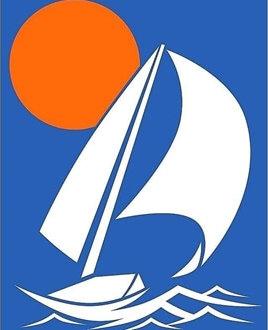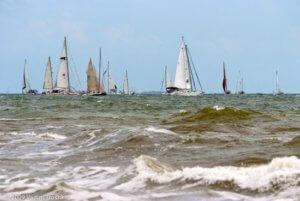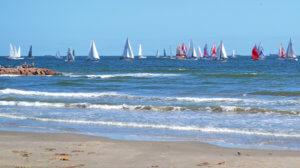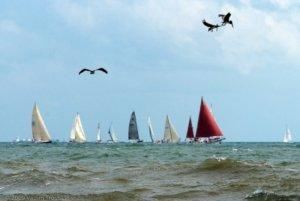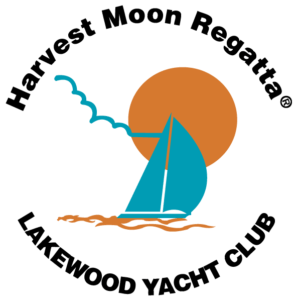Price per person (for round trip or one way):
$1100.00/person on a catamaran
$800/person on a monohull (option to add on ASA 106 for an additional $300)
Safety Equipment:
You are responsible for your own personal safety gear including (These will be required for each person):
- A life jacket that provides at least 33.7lbs (150N) of buoyancy, intended to be worn over the shoulders (no belt pack), meeting either U.S. Coast Guard or ISO specifications. Life jackets shall be equipped with crotch or leg straps, a whistle, a waterproof light, be fitted with marine-grade retro-reflective material, and be clearly marked with the boat’s or wearer’s name, and be compatible with the wearer’s safety harness. If the life jacket is inflatable, it shall be regularly checked for air retention. Leg or crotch straps will be required starting 01/01/2014. Alternatively, each crewmember shall have a U.S. Coast Guard approved Type I life jacket equipped with crotch or leg straps, a whistle, a waterproof light, retro-reflective material, marked with the boat or owner’s name, which is compatible with a safety harness.
- A safety harness and compatible safety tether not more than 7 feet (2.13m) long with a minimum tensile strength of 4500 Ib. (20kN). The tether shall have a snap hook at its far end and a means to quickly disconnect the tether at the chest end.
- All lifesaving equipment shall bear retro-reflective material and be marked with the yacht’s or wearer’s name. The exception would be for new equipment or rented equipment (e.g. life rafts) that would require the unpacking of sealed equipment in order to meet this requirement. The boat name shall be stenciled on during the first servicing of any new equipment.
Sleeping arrangements
Crew are responsible for providing sleeping linens (e.g., sleeping bag, pillows, sheets, etc.)
While underway off-watch crew may sleep in any available, comfortable location
On arrival to Port Aransas, you will need to find your own accommodations for Friday and Saturday night. You have the option of returning to Kemah by boat or you can make additional arrangements to return by car. Lakewood Yacht Club provides a charter bus for a small fee that returns to Kemah/Seabrook.
Luggage
Luggage needs to be soft-sided and collapsible (i.e., no wheeled or hard-sided bags). Duffels work well.
Provisioning
There will be a fridge and freezer available to hold drinks, snacks, easy to eat food for the crew while underway
Crew is responsible for providing own provisions
Skills
These skills will be addressed with the crew by the captain prior to the race start. Practice days may be arranged in advance with the captain to make sure the crew is comfortable in handling the boat.
- Emergency Steering 4.1 A boat’s crew shall be aware of multiple methods of steering the boat with the rudder disabled, and shall have chosen and practiced one method of steering the boat with the rudder disabled and be prepared to demonstrate said method of steering both upwind and downwind.
- Man Overboard 4.2 Annually, two-thirds of the boat’s racing crew shall practice man-overboard procedures appropriate for the boat’s size and speed. The practice shall consist of marking and returning to a position on the water, and demonstrating a method of hoisting a crew member back on deck, or other consistent means of reboarding the crew member.
